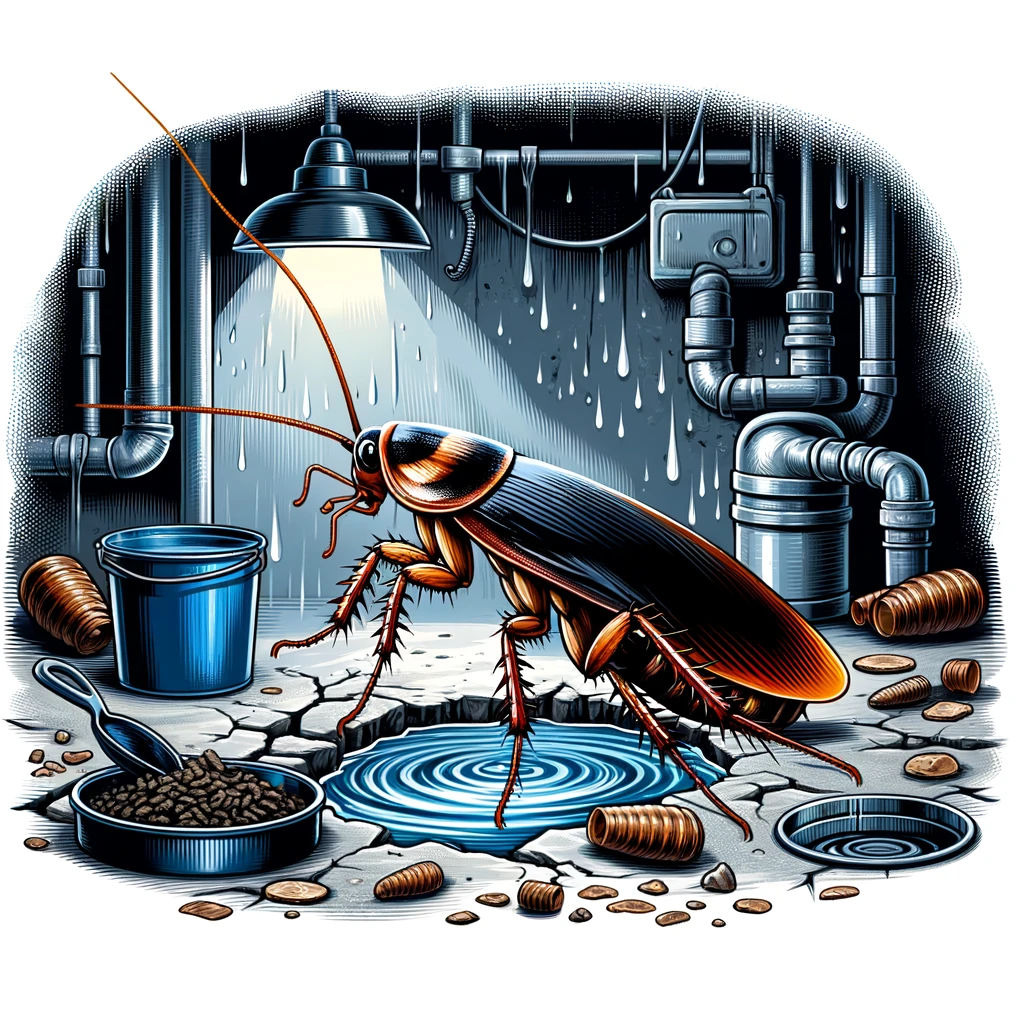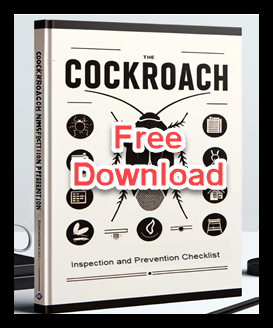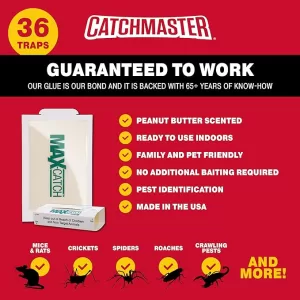Black Water Bug Identification and Control
 The term “black water bug” is often used to describe certain types of cockroaches, particularly the Oriental cockroach. These pests are commonly found in damp, dark environments and can become a nuisance in homes and buildings. In this article, we’ll explore what black water bugs are, how to identify them, and the best methods for controlling and preventing infestations.
The term “black water bug” is often used to describe certain types of cockroaches, particularly the Oriental cockroach. These pests are commonly found in damp, dark environments and can become a nuisance in homes and buildings. In this article, we’ll explore what black water bugs are, how to identify them, and the best methods for controlling and preventing infestations.
What is a Black Water Bug?
Oriental Cockroach
The black water bug is most commonly identified as the Oriental cockroach (Blatta orientalis). These cockroaches are known for their dark, almost black coloration and their preference for moist environments.
- Appearance: Oriental cockroaches are dark brown to black and have a glossy appearance. Adult females are about 1.25 inches long, while males are slightly smaller.
- Habitat: These cockroaches thrive in cool, damp areas such as basements, crawl spaces, and around plumbing fixtures. They are also commonly found outdoors in leaf litter, mulch, and other decaying organic matter.
Identifying Black Water Bugs
Physical Characteristics
- Color: Dark brown to black, with a shiny, glossy appearance.
- Size: Females are about 1.25 inches long, while males are slightly smaller.
- Wings: Males have wings that cover about half of their abdomen, while females have very short wings and cannot fly.
Behavior
- Nocturnal Activity: Black water bugs are primarily active at night, making it easier to spot them during nighttime inspections.
- Movement: They are slow-moving compared to other cockroach species.
Signs of Infestation
Visible Sightings
Seeing black water bugs in your home, particularly in kitchens, bathrooms, and basements, is a clear sign of an infestation.
Droppings
Look for small, dark droppings that resemble coffee grounds in areas where these cockroaches are active.
Odor
A musty odor can develop in areas with a significant infestation, caused by the secretions of the cockroaches.
Controlling Black Water Bugs
Sanitation and Maintenance
- Eliminate Food Sources: Keep your kitchen clean, store food in sealed containers, and dispose of garbage regularly.
- Reduce Moisture: Fix leaky faucets and pipes, use dehumidifiers in damp areas, and ensure good ventilation throughout your home.
- Seal Entry Points: Inspect your home for cracks, holes, and other openings, especially near ground level, and seal them to prevent entry.
Chemical and Natural Controls
- Baits and Insecticides: Use baits and insecticides specifically designed for cockroach control, placing them near suspected activity areas. Always follow the product’s safety instructions.
- Natural Repellents: Diatomaceous earth and boric acid can be effective natural treatments when used in areas where cockroaches travel.
Professional Pest Control
For severe infestations, professional pest control services may be necessary. Experts can offer customized solutions that include thorough inspections, treatments, and follow-up visits to ensure the infestation is fully resolved.
Preventing Future Infestations
Regular Inspections
Conduct regular inspections of your home, paying close attention to basements, crawl spaces, and other damp areas where black water bugs are likely to hide.
Maintenance and Repairs
Keep up with home maintenance and repairs to eliminate potential entry points and reduce conditions that attract cockroaches.
Proper Storage
Store food properly and keep your home clean to minimize food sources that attract black water bugs.
Black water bugs, or Oriental cockroaches, can be a significant nuisance in homes due to their preference for damp, dark environments. By understanding how to identify these pests and implementing effective control and prevention measures, you can keep your home free of these unwelcome guests. Regular inspections, maintenance, and sanitation are key to preventing infestations and maintaining a healthy living environment.
If you suspect a black water bug infestation in your home, take immediate steps to address it. Regular cleaning, moisture control, and sealing entry points are crucial. For persistent infestations, consider contacting a professional pest control service for expert assistance.
- The Life Span of a Cockroach
- Do Cockroaches Eat Clothes?
- Do Cockroaches Have Teeth?
- Shrimps and Cockroaches
- Will Sleeping with the Light On Keep Cockroaches Away?
- How to get roaches out of your car overnight
- Do Cockroaches Feel Pain?
- How Many Legs Do Cockroaches Have?
- Comparing Cockroach Eggs Size for Different Types of Cockroaches
- Identifying a Cockroach Bite on the Lips or Face
- Black Water Bug Identification and Control
- Why Do Water Bugs Come Out At Night?
- What Does Roach Rash Look Like?
- Can Cockroaches Bite Your Eyelid?
- Can Cockroaches Live in Your Balls?
- How did cockroaches get their name?
- Why Do Cockroaches Shed Their Skin?
- What Smell do Palmetto Bugs Hate?
- Baby Palmetto Bug: Identification and Control
- Cockroach Eggs vs Poop: How to Tell the Difference
- How to Get Rid of Water Bugs
- How Long Can a Cockroach Live Without Air?
- The Lifecycle of the German Cockroach: From Egg to Adult
- Do Mice Eat Roaches
- Wood Roach vs. Cockroach

